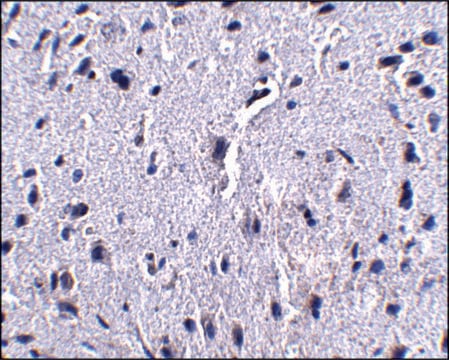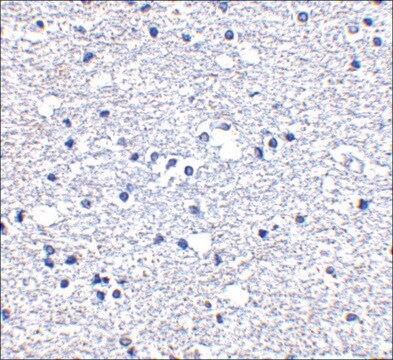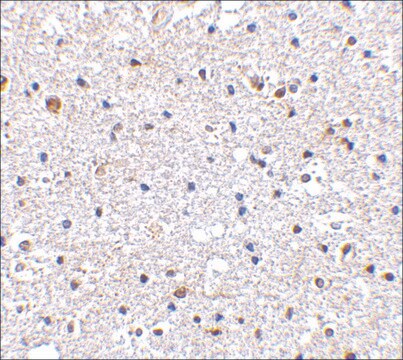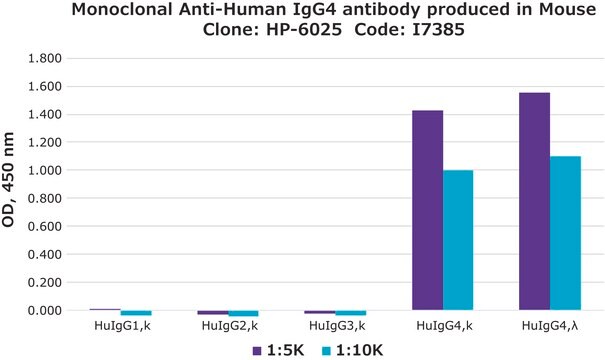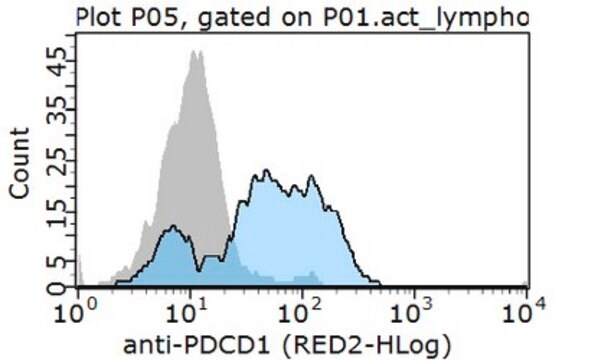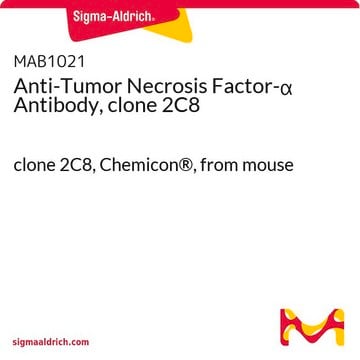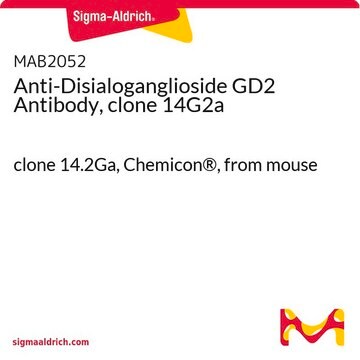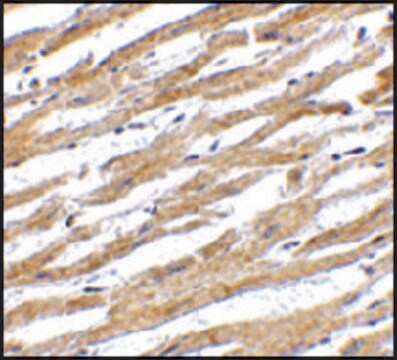일반 설명
We are committed to bringing you greener alternative products, which adhere to one or more of The 12 Principles of Green Chemistry.This antibody is Preservative-free, produced without the harm or sacrifice of animals and exceptionally stable to allow for ambient shipping and storage if needed and thus aligns with "Waste Prevention", "Designing Safer Chemicals" and "Design for Energy Efficiency".
Click here for more information.
ZooMAb antibodies represent an entirely new generation of recombinant monoclonal antibodies.
Each ZooMAb antibody is manufactured using our proprietary recombinant expression system, purified to homogeneity, and precisely dispensed to produce robust and highly reproducible lot-to-lot consistency. Only top-performing clones are released for use by researchers. Each antibody is validated for high specificity and affinity across multiple applications, including its most commonly used application. ZooMAb antibodies are reliably available and ready to ship when you need them.
특이성
Clone 1F7 is a ZooMAb® rabbit recombinant monoclonal antibody that specifically detects human Programmed cell death protein 1. It targets an epitope within the N-terminal, extracellular domain.
면역원
GST/His-Tagged recombinant fragment corresponding to 150 amino acids from the extracellular domain of human Programmed cell death protein 1 (PD-1).
애플리케이션
Quality Control Testing
Evaluated by Flow Cytometry in Molt4 cells.
Flow Cytometry Analysis: 0.1 μg of this antibody detected PD-1 in 250,000 Molt4 cells.
Tested Applications
Affinity Binding Assay: A representative lot of this antibody bound recombinant PD-1 fragment with a KD of 1.7 x 10-7 in an affinity binding assay.
Immunohistochemistry (Paraffin) Analysis: A 1:1,000 dilution from a representative lot detected PD-1 in human tonsil tissue sections.
Immunocytochemistry Analysis: A 1:100 dilution from a representative lot detected PD-1 in HuT 78 cells.
Note: Actual optimal working dilutions must be determined by end user as specimens, and experimental conditions may vary with the end user
Anti-PD-1, clone 1F7 ZooMAb®, Cat. No. ZRB1025, is a recombinant Rabbit monoclonal antibody that specifically targets PD-1 and is tested for use in Affinity Binding Assay, Flow Cytometry, Immunocytochemistry, and Immunohistochemistry (Paraffin).
표적 설명
Programmed cell death protein 1 (UniProt: Q15116; also known as Protein PD-1, hPD-1, CD279) is encoded by the PDCD1 (also known as PD1) gene (Gene ID: 5133) in human. PD-1 is a monomeric inhibitory cell surface receptor involved in the regulation of T-cell function during immunity and tolerance. PD-1 is synthesized with a signal peptide (aa 1-23), which is subsequently cleaved off to generate the mature form that contains an extracellular domain (aa 24-170), a transmembrane domain (aa 171-191), and a cytoplasmic domain (aa 192-288). PD-1 also contains a single N-terminal immunoglobulin variable region (IgV) like domain. PD-1 and its ligands, PD-L1 and PD-L2 play a key role in the maintenance of peripheral tolerance, a process by which the quiescence of autoreactive mature T cells is maintained. However, tumors and pathogens that cause chronic infections can exploit this pathway to escape T-cell mediated tumor-specific and pathogen-specific immunity. The effector functions of T-cells expressing PD-1 can be downregulated by PD-L1 or PD-L2 expressed by the tumor cells. PD-1 lacks SH2- or SH3-binding motifs on its cytoplasmic tail but contains the N-terminal sequence VDYGEL that forms an immunoreceptor tyrosine-based inhibition motif (V/I/LxYxxL), which recruits SH2 domain-containing phosphatases. The cytoplasmic tail also contains the C-terminal sequence TEYATI, which forms an immunoreceptor tyrosine-based switch motif (TxYxxL). PD-1 ligation is reported to inhibit the activation of T-cell receptor proximal kinases, which results in attenuation of Lck-mediated phosphorylation of ZAP-70 and initiation of downstream events. PD-1 is also reported to impair the activation of the MEK-ERK MAP kinase pathway by inhibiting activation of PLC- 1 and Ras. This ZooMAb® recombinant monoclonal antibody, generated by our propriety technology, offers significantly enhanced specificity, affinity, reproducibility, and stability over conventional monoclonals. (Ref.: Boussiotis, VA. (2016). N. Engl. J. Med. 375; 1767-1778).
물리적 형태
Purified recombinant mouse monoclonal antibody IgG, lyophilized in PBS, 5% Trehalose, normal appearance a coarse or translucent resin. Contains no biocide or preservatives, such as azide, or any animal by-products. Larger pack sizes provided as multiples of 25 μL.
재구성
300 μg/mL after reconstitution at 25 μL per vial. Please refer to guidance on suggested starting dilutions and/or titers per application and sample type.
저장 및 안정성
Recommend storage of lyophilized product at 2-8°C; Before reconstitution, micro-centrifuge vials briefly to spin down material to bottom of the vial; Reconstitute each vial by adding 25 μL of filtered lab grade water or PBS; Reconstituted antibodies can be stored at 2-8°C, or -20°C for long term storage. Avoid repeated freeze-thaws.
법적 정보
ZooMAb is a registered trademark of Merck KGaA, Darmstadt, Germany
면책조항
Unless otherwise stated in our catalog or other company documentation accompanying the product(s), our products are intended for research use only and are not to be used for any other purpose, which includes but is not limited to, unauthorized commercial uses, in vitro diagnostic uses, ex vivo or in vivo therapeutic uses or any type of consumption or application to humans or animals.

